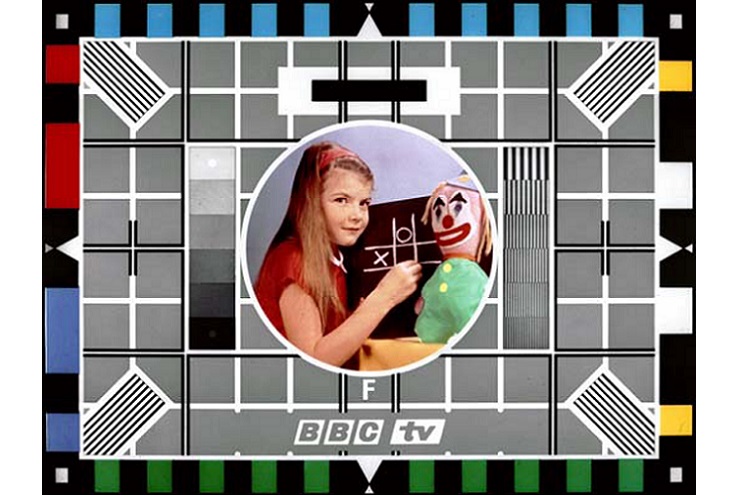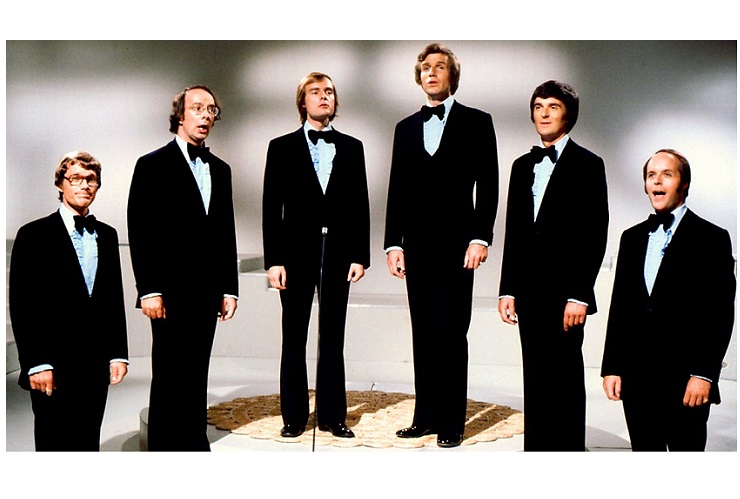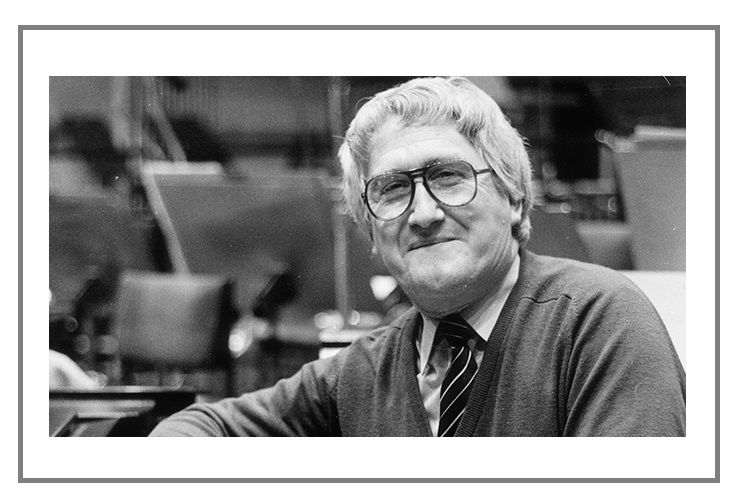
27: Gordon Langford (1930 – 2017)
The name Gordon Maris Colman will not mean a great deal to people within the brass band movement.
His musical impact would though.
Born in Edgware, Middlesex on 11th May 1930 he was later to change it to Gordon Langford – a compositional pseudonym that brought worldwide recognition.
In the same way that Gilbert Vinter’s emergence at the beginning of the 1960s heralded a watershed in original contesting music, Langford’s slightly later arrival as a consummate arranger of concert repertoire was of equal, if not even greater significance.
From the 1970s, his name appeared on just about every brass band concert programme – his ability to bring fresh invention to ingrained melodic structure without ever losing the essence of the source material a skill few have mastered with such complete assuredness or originality.
Like Vinter his music remains as relevant today as it was when it first appeared.
Prodigious talent
The son of a precision diamond toolmaker, Gordon Colman started piano lessons at the age of five. He quickly revealed a prodigious musical talent. Blessed with perfect pitch he was aged just nine when his first composition was performed, and two years later was a concert soloist playing Mozart’s ‘Piano Concerto in A major’ (KV488).
In 1947 he won a Middlesex scholarship to the Royal Academy of Music.
I studied piano, and loved Norman Demuth, my professor of composition. It was through his advice that I changed my name from Colman to Langford. He said I should have a pseudonym, and though I kept Colman as a forename my real name is now Langford.
Name change
Studious and driven (trombone was his second instrument), he came under the influence of composer and musicologist Norman Demuth (1898-1968). His impact was immeasurable – to the point that Gordon Colman took his advice to change his name.
In an interview given to the Musical Theatre magazine in 2005 he said: “I was interested in all music-making and really wanted to be accepted as a serious composer. I'd been to the Royal Academy of Music and had had a wonderful musical education.
I studied piano, and loved Norman Demuth, my professor of composition. It was through his advice that I changed my name from Colman to Langford. He said I should have a pseudonym, and though I kept Colman as a forename my real name is now Langford.
I'm extremely sorry that with all the availability of music by lesser British composers that Demuth's name isn't there at all.”
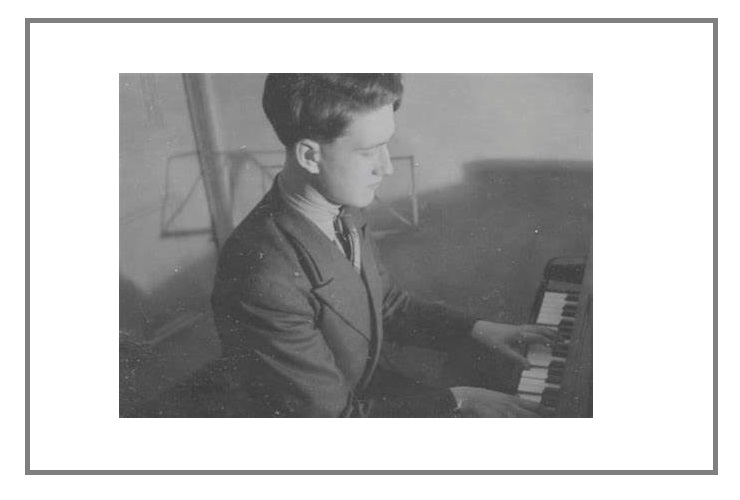
Gigging around
It was through Demuth’s influence that on leaving college, the now Gordon Langford embarked on his compositional career, although he later admitted that “nobody at that stage was likely to pay me to write original music, so I was gigging around on the piano and writing arrangements.”
He performed as a solo pianist (making a radio broadcast as a member of the Royal Artillery Band in 1951) as well as touring seaside venues with music companies and even enjoying a short spell as a ship’s musician.
he later admitted that “nobody at that stage was likely to pay me to write original music, so I was gigging around on the piano and writing arrangements.”
His arrangements were soon noticed however by the great band leader Henry Hall, and as Gordon recalled, “things sort of slotted in from there.”
Foundation
The years that followed formed the foundation of his skill set.
Although he formed his own identifiable style, he greatly admired the orchestrations of people such as Peter Knight (who became the orchestra director for the Morecambe & Wise Show), Burt Rhodes (who wrote the theme tune to the popular BBC television series, ‘The Good Life’ and orchestrated the first James Bond film ‘Dr No’) and Ian Fraser (who worked with Anthony Newley and Leslie Bricusse and who won 11 Emmy Awards).
He said that these were composers, “whose work has a sort of mastery, a certain authority about it.”
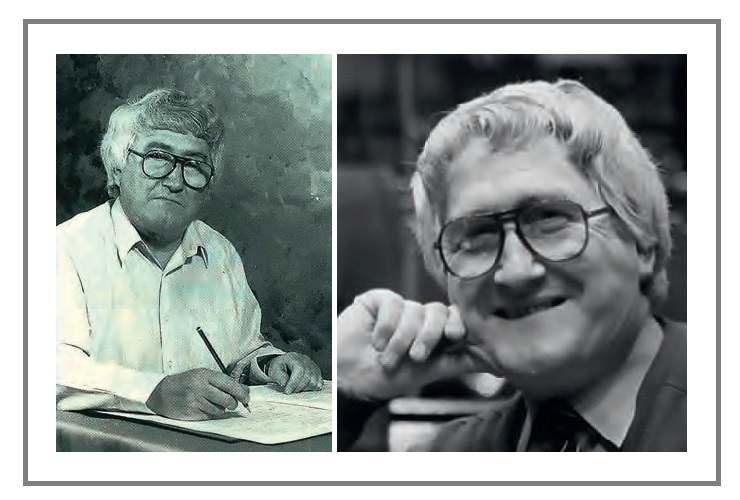
Reputation
There was to be little doubt that his output was also of the same quality. His reputation was to become such that he later worked as an orchestrator for several musical shows in London's West End and for films such as ‘Raiders of the Lost Ark’, ‘Superman II’, ‘First Great Train Robbery’, ‘Clash of the Titans’ and ‘Return to Oz’.
By the late 1960s he was established as a leading ‘light music’ composer, although the term fails to perhaps appreciate the rigour or substance of his varied output.
His early professional life quickly became entwined with the musical theatre, with successful productions such as ‘The Crooked Mile’ and ‘House of Cards’ - although he also encountered failure, notably on the Queen Victoria love story ‘I and Albert’ (although he was fond of it).
Talent in demand
Despite the occasional set-back his talent was in demand – his orchestration for the musical ‘Scrooge’ (through Leslie Bricusse) seeing him orchestrate an 80-piece symphony orchestra for the subsequent film version.
By the late 1960s he was established as a leading ‘light music’ composer, although the term fails to perhaps appreciate the rigour or substance of his varied output. It was incredibly diverse - from BBC radio programmes such as ‘Music in the Air’ and an early Ronnie Barker series ‘Lines from my Grandfather’s Forehead’ to ‘Friday Night is Music Night’ and ‘Thanks for the Memory’.
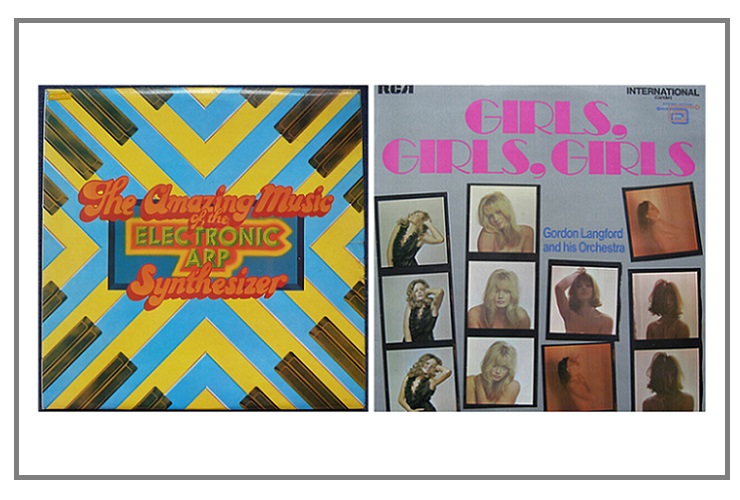
Girls, Girls, Girls
In 1970 he also recorded with his own ‘Orchestra’ the LP ‘Girls, Girls, Girls’ which featured his arrangements of hits from the likes of Antonio Carlos Jobim to Irvin Berlin.
His relationship with the BBC also saw him produce music such as ‘Hebridean Hoedown’, ‘The Lark in the Clear Air’ and ‘Royal Daffodil’ to accompany the broadcast of the much loved ’Test Card’ transmissions (below), whilst in 1971 he won a Ivor Novello Award for his ‘March’ from his ‘Colour Suite’.
https://englishlanguageandhistory.com/music/?id=gordon-langford-colour-suite-march
Further accolades followed in winning a brace of European Broadcasting Union awards for new music, as well as the Gold Badge of Merit by the British Academy of Songwriters, Composers and Authors. In later life he was nominated for a Fellowship of the Royal Academy of Music.
King's Singers
Before he made his detour to the brass band world, Gordon Langford started a lasting musical relationship with The King’s Singers (below), the renowned vocal ensemble formed in 1968.
He was integral to their first album release in 1971 (contributing five arrangements with his group, the Gordon Langford Trio, also backing four numbers). It was to be an association that lasted the rest of his professional life.
Legend
In a 2015 article about his contribution, they stated: “Gordon Langford certainly has to be up there with the most important KS arrangers of all time. He spent time arranging for brass bands and used this same philosophy of tightly spaced chording ('close harmony') when writing for The KS. What a legend…”
Gordon Langford certainly has to be up there with the most important KS arrangers of all time.
Brass bands
During the 1960s Langford began to write for brass bands. Under his real name he arranged ‘The Londonderry Air’ and was also asked to write for a short series of eight LPs produced by EMI Records.
His first was ‘Merry Mancunians’ recorded by Foden’s and early arrangements included ‘The Beautiful Galathea’ (Suppe), ‘Marche Militaire’ (Schubert) and ‘Blaydon Races’. This was later to become a classic euphonium solo, but on its first outing it was sung by Owen Brannigan accompanied by the B.M.C. Concert Band.
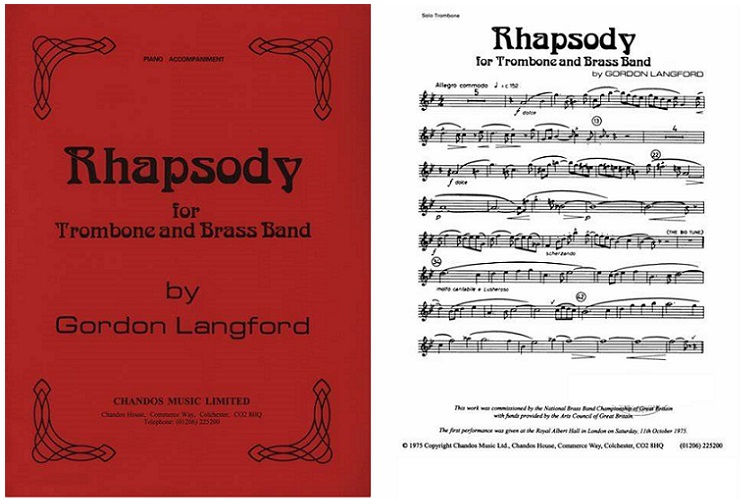
Chandos link
Following the demise of RCA Records, his works became prominent features on the Chandos label - the partnership based on a long-standing friendship between Langford and Chandos owner Brian Couzens through their joint interest in trombone playing.
Langford’s music was published by Chandos Music and recorded on the house label by their principal recording band, Black Dyke Mills. Popularity as well as sales were guaranteed.
Langford’s music was published by Chandos Music and recorded on the house label by their principal recording band, Black Dyke Mills. Popularity as well as sales were guaranteed.
The output flowed – refined, melodic and always interesting – from classical arrangements such as the overture ‘Daughter of the Regiment’ (Donizetti), ‘Espana’ (Chabrier) and the ‘Barcarolle’ from ‘Tales of Hoffman’ (Offenbach), to what became something of a speciality – his subtly crafted ‘fantasies’ – from ‘Sea Songs’ to ‘Sullivan’, ‘West Country’ to ‘British Marches’.
Skills
The ability to elaborate style and virtuosity without ever losing the lyrical core of works was astounding - the simplest folk melody or orchestral chamber pieces treated with the same astute respect.
His solo arrangements (especially those on releases such as Philip McCann’s ‘World Most Beautiful Melodies’ series) were balanced with a texture and transparency that was testament to his piano skills and musical theatre work. Lead lines were never lost.
His ‘Rhapsody for Trombone’, first performed by the great Don Lusher, became a staple of the repertoire for any serious soloist, whilst he also wrote several original compositions – perhaps the most popular his ‘Sinfonietta’, a gem of concise form and function with a central section of touching beauty.
His ‘Rhapsody for Trombone’, first performed by the great Don Lusher, became a staple of the repertoire for any serious soloist, whilst he also wrote several original compositions – perhaps the most popular his ‘Sinfonietta’, a gem of concise form and function with a central section of touching beauty.
‘Prelude and Fugue’ was described by Roy Newsome as “a fresh look at what many regard as a dangerously academic exercise for a band”, although ‘Three Haworth Impressions’ and ‘Facets of Glass’ are now perhaps less well known and performed.
‘Harmonious Variations on a Theme of Handel’ (commissioned for a recording by Black Dyke Mills Band in 1978 to celebrate the triple National successes of 1975, 1976 and 1977) was though a masterful piece of pastiche originality.
In addition, he also wrote several shorter works, including a substantial ‘Rhapsody for Cornet and Brass Band’ featuring Besses ‘o ‘th Barn Band with James Watson as the soloist, and described by Roy Newsome as an example of “light music at its best”.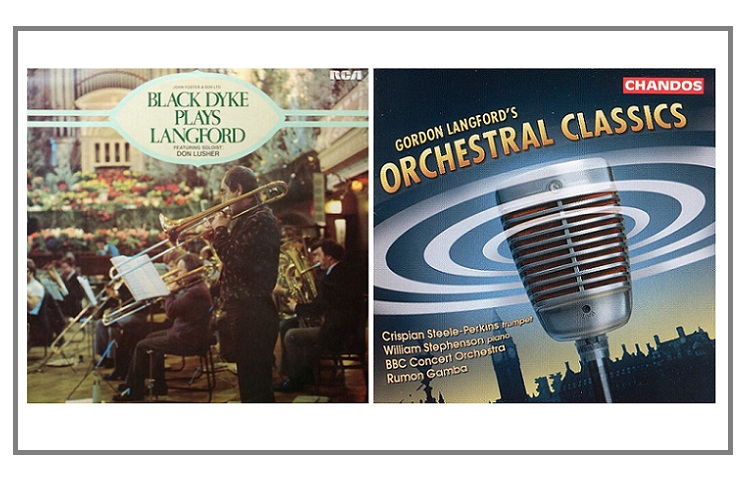
Adjudicator
Although never a complete ‘fan’ of the contesting environment, Gordon Langford did adjudicate at the British Open (1985), Grand Shield (1979) and Brass in Concert (1982/83/89 and 1989).
In later years, his musical legacy and reputation secured, he lived quietly in East Devon, spending most of his time composing, whilst still making the occasional recording, concert or broadcast.
He was a gentle and kind man who had the genius ability to write wonderful music – a dream to play and always tuneful.”
In 1994 his ‘Grand Fantasia' on ‘La Boheme’ was composed for the 100th anniversary of The Proms, and in 2003 a CD of his original compositions for orchestra performed by the BBC Concert Orchestra conducted by Rumon Gamba was released. It won widespread acclaim – with the Gramophone magazine saying that he wrote “in a winningly felicitous way”.
It further reinforced what many had already thought of his output.
As Brian Couzens (the son of Ralph, who continued to work with him) said on his death: “He was a gentle and kind man who had the genius ability to write wonderful music – a dream to play and always tuneful.”
Gordon Langford died in April 2017, aged 86.
Tim Mutum
4BR Hall of Fame: No.1: Jack Atherton
https://www.4barsrest.com/articles/2019/1832.asp
4BR Hall of Fame: No.2: Albert Baile
https://www.4barsrest.com/articles/2019/1836.asp
4BR Hall of Fame: No.3: Stanley Boddington
https://www.4barsrest.com/articles/2019/1842.asp
4BR Hall of Fame: No.4: Bram Gay
https://www.4barsrest.com/articles/2020/1848.asp
4BR Hall of Fame: No.5: Leonard Lamb
https://www.4barsrest.com/articles/2020/1855.asp
4BR Hall of Fame: No.6: Arthur Stender
https://www.4barsrest.com/articles/2020/1866.asp
4BR Hall of Fame: No.7: Violet Brand
https://www.4barsrest.com/articles/2020/1871.asp
4BR Hall of Fame: No.8: Eric Bravington
https://www.4barsrest.com/articles/2020/1875.asp
4BR Hall of Fame: No.9: Norman Ashcroft
https://www.4barsrest.com/articles/2020/1879.asp
4BR Hall of Fame: No.10: Albert Chappell
https://www.4barsrest.com/articles/2020/1884.asp
4BR Hall of Fame: No.11: Betty Anderson
https://www.4barsrest.com/articles/2020/1889.asp
4BR Hall of Fame: No.12: Trevor Walmsley DFC
https://www.4barsrest.com/articles/2020/1897.asp
4BR Hall of Fame: No.13: Percy Code
https://www.4barsrest.com/articles/2020/1903.asp
4BR Hall of Fame: No.14: George Thompson MBE
https://www.4barsrest.com/articles/2020/1909.asp
4BR Hall of Fame: No.15: Willie Lang
https://www.4barsrest.com/articles/2020/1914.asp
4BR Hall of Fame: No.16: James Scott
https://www.4barsrest.com/articles/2021/1916.asp
4BR Hall of Fame: No.17: Jack Mackintosh
https://www.4barsrest.com/articles/2021/1922.asp
4BR Hall of Fame: No.18: Teddy Gray
https://www.4barsrest.com/articles/2021/1928.asp
4BR Hall of Fame: No.19: Rowland Jones
https://www.4barsrest.com/articles/2021/1932.asp
4BR Hall of Fame: No.20: Helen Perkin
https://www.4barsrest.com/articles/2021/1944.asp
4BR Hall of Fame: No.21: Lt Col Cecil H Jaeger OBE
https://www.4barsrest.com/articles/2021/1954.asp
4BR Hall of Fame: No.22: Alex Mortimer
https://www.4barsrest.com/articles/2021/1966.asp
4BR Hall of Fame: No.23: Henry Geehl
https://4barsrest.com/articles/2022/1987.asp
4BR Hall of Fame: No.24: Geoffrey Brand
https://www.4barsrest.com/articles/2023/1996.asp
4BR Hall of Fame: No.25: Maurice Murphy
https://www.4barsrest.com/articles/2023/2002.asp
4BR Hall of Fame: No.26: Arthur Butterworth
https://www.4barsrest.com/articles/2023/2011.asp



